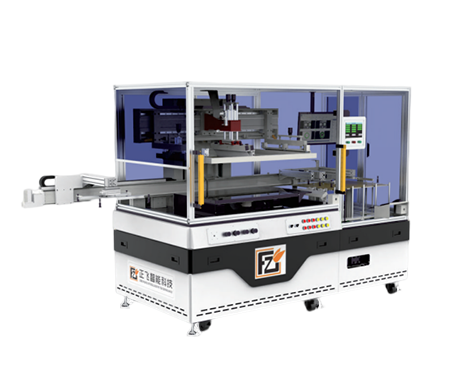
In large-scale printing applications, fully automatic sheet screen printing machines often adopt a continuous operation mode to enhance production capacity and process continuity. A typical wiring structure consists of a feeding module, a pre-alignment platform, a silk-screen printing module, a discharging platform and a transmission channel. Each module is linked and controlled with the motion control system through a PLC.
At the feeding end, the vacuum adsorption mechanism accurately extracts the sheet materials from the material pile and places them on the conveyor line, and in combination with the belt synchronous belt drive, it achieves smooth feeding. The alignment system completes image recognition and position correction before the sheet material enters the silk-screen printing area. Commonly used CCD modules can compare the template coordinates in real time and automatically compensate for position errors.

After the screen printing module completes the pattern transfer, the sheet material is conveyed to the next process, such as the drying area or inspection station, by clamping or adsorption. If combined with an automatic material collection device or packaging system, it can further form an automated process for the entire line.
During the connection process, it is necessary to ensure that the rhythm matching, communication synchronization and position accuracy are consistent. The controller should have multi-axis coordination capability and compatibility with the vision system. Through modular design and standardized interfaces, the fully automatic sheet screen printing machine can be effectively integrated into SMT, coating or die-cutting production lines, improving overall operational efficiency.